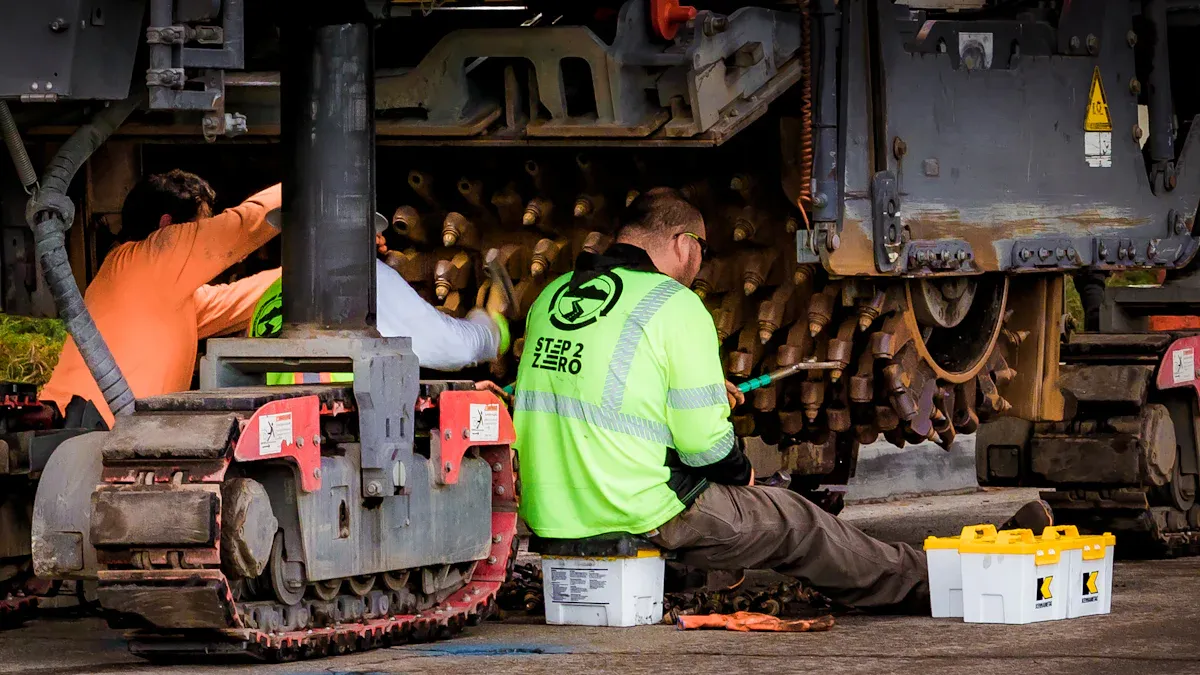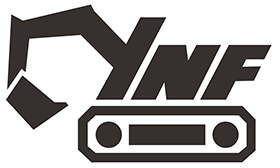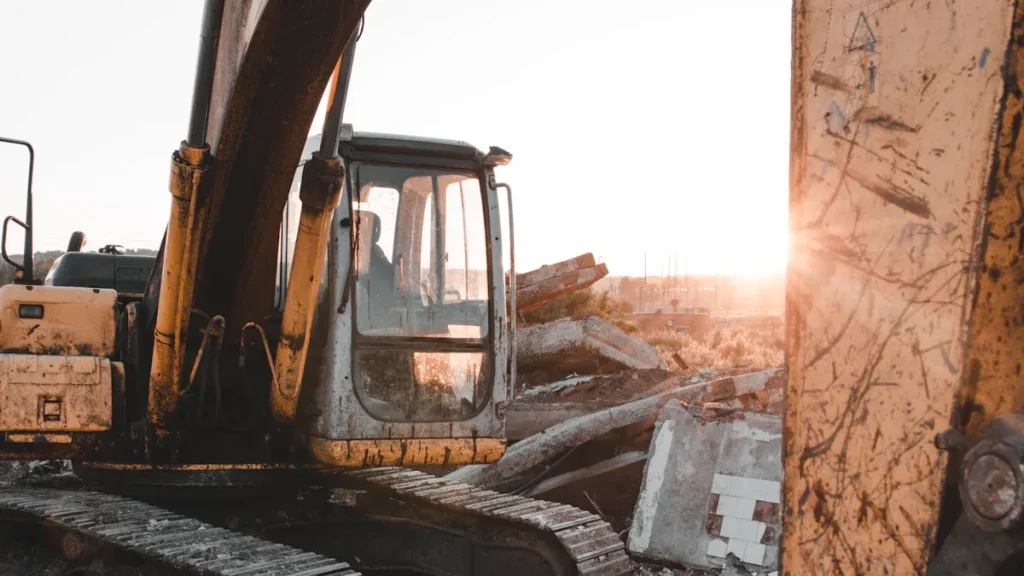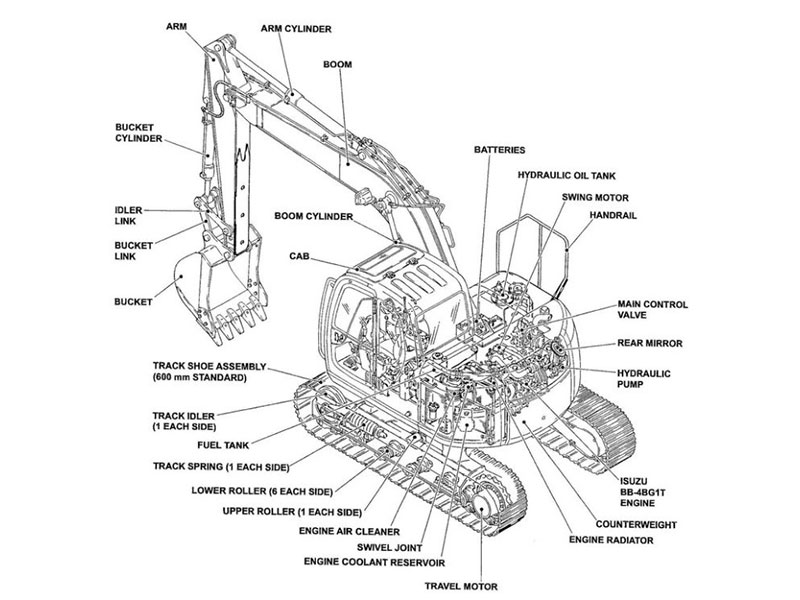
If you want your excavator to last longer, you need to watch gear part excavator components closely. Doing daily maintenance lets you find wear before it causes trouble. Dirt and debris can make parts wear out fast, so clean your excavator after every use. Good maintenance stops early gear part excavator failure and helps you avoid costly repairs. Making your machine last longer saves money and keeps your work going. Follow these maintenance tips to help your machine and gear parts last longer. Check for wear often, because wear makes parts not last as long and affects their life.
Key Takeaways
Check your excavator every day to find wear, leaks, or dirt early. This helps stop bigger problems from happening.
Clean gear parts after each use to stop rust. Cleaning also removes debris and helps you see damage fast.
Use the correct lubricant often to lower friction. This protects gear parts from wearing out and from rust.
Change worn parts right away with good or OEM parts. This stops more damage and keeps your machine working well.
Teach operators the right way to use the machine. Do not overload it. This lowers mistakes and helps your excavator last longer.
Essential Maintenance Practices

Daily Inspection
Check your excavator every day before work. This helps you find wear, leaks, or debris early. Daily inspection is very important for keeping your gear part excavator in good shape. If you check often, you stop early wear and bigger problems.
Here is a simple checklist for daily inspection:
Look for wear on moving parts. Watch gears, joints, and pins.
Check seals for leaks or damage. Leaks can make lubricant go away and cause fast wear.
Look for dirt or debris near gear parts. Take out anything that could hurt the machine.
Make sure bolts and fasteners are tight. Loose parts can make wear worse.
Listen for odd noises when using the machine. Strange sounds can mean wear or damage.
Check fluid levels, like lubricant and hydraulic fluids. Low fluids can cause early wear.
Write down any problems in a maintenance log. This helps you see patterns and plan fixes.
Tip: Get every operator to help with daily checks. When everyone checks, you find problems early and your excavator lasts longer.
Routine checks also mean looking at tires or tracks for wear or damage. You should check the hydraulic and brake systems for leaks or pressure issues. If your machine has electronic parts, look at the electrical connections too. Keeping good records of each check helps you see wear patterns and plan repairs before things break.
Cleaning Gear Parts
Cleaning is a big part of heavy equipment care. Dirt, mud, and debris can build up on gear parts and cause early wear. After each use, clean your excavator well. Use a brush or air to get dirt off gears and joints. Pay extra attention to hard spots where dirt hides.
Cleaning gear parts helps stop rust and corrosion. Dirt and water together can hurt metal and make wear happen faster. Cleaning also helps you see cracks, leaks, or other wear during your next check.
Here are some cleaning tips to keep your gear part excavator in good shape:
Clean inside and outside the machine after every use.
Use the right tools for each part. Soft brushes are good for gentle spots.
Dry all parts after cleaning to stop rust.
Look for leftover lubricant or oil. Wipe away extra so dirt does not stick.
Check seals and joints while cleaning. Watch for wear or leaks.
Note: Cleaning often is an easy way to stop early wear and help your excavator last longer. It also makes heavy equipment care easier and better.
If you follow these steps, you lower the chance of breakdowns and keep your machine working longer. Good care starts with checking and cleaning. When you do these things every day, you protect your machine and save money on repairs.
Lubrication for Gear Part Excavator

Lubricant Selection
Picking the right lubricant is very important for your excavator. You need a good lubricant to protect your gear part excavator during hard work. When you choose a lubricant, look for these features:
High dropping point (330-360 ºC) so it works in heat.
Good penetration values for even coverage.
Corrosion resistance, shown by copper strip tests.
Low oil separation and water washout loss, so it stays on in wet places.
High extreme pressure properties for heavy loads.
Strong adhesion, anti-wear, anti-corrosion, and anti-rust abilities.
Works well in high temperature, humidity, and heavy load jobs.
Wide temperature range from -30ºC to 220ºC.
Great mechanical and physical stability for lasting protection.
Superior load carrying capacity, often with solid lubricants like molybdenum disulfide.
Water repellency to keep water away.
Environmentally friendly formula.
A good lubricant makes a shield on gear surfaces. It helps your excavator run smoothly and stops early wear. Your machine works better and lasts longer.
Tip: Always read the label and pick lubricants made for excavators. This gives your machine the best protection.
Lubrication Schedule
You should follow a regular lubrication schedule for your excavator. Grease moving parts every 50-100 hours of use. This lowers friction and wear, so your machine breaks down less. Daily checks of fluid levels help you find leaks or low lubricant before they cause problems.
Regular lubrication is a key part of good maintenance. It helps you spot early signs of wear or dirt. Using the right lubricant and keeping a schedule lowers the risk of gear failures. Your excavator works better and lasts longer.
Lubricating on time keeps your gear part excavator ready for any job.
Timely Replacement & Quality Parts
Signs of Wear
It is important to find signs of wear early. This helps your excavator work well for a long time. If you ignore worn gear part excavator pieces, bigger problems can happen. Always look for these signs when you check your excavator:
Listen for strange sounds like grinding or knocking.
Look for cracks, chips, or pits on gear surfaces.
Check if gears or joints feel loose or shaky.
Watch for oil or grease leaking near seals.
Notice if the machine shakes or vibrates too much.
See if metal parts look burnt or have odd colors.
Feel if parts are harder to move than before.
There are different ways to find wear early. Regular checks help you spot trouble before it gets worse. Oil analysis can show tiny metal bits in the lubricant. This means gears are wearing out. Vibration analysis checks if the machine moves in a new way. This can mean something is not lined up right. Infrared thermography finds hot spots from friction. Ultrasound inspection listens for odd sounds inside the machine. Magnetic particle testing finds cracks in metal parts. Real-time monitoring systems can warn you about problems right away.
Tip: If you see any signs of wear, fix them fast. Waiting can make things worse and your excavator may not last as long.
OEM and High-Quality Parts
When you change excavator parts, pick OEM or high-quality ones. OEM means Original Equipment Manufacturer. These parts fit your machine just right. High-quality parts last longer and work better in tough jobs. Cheap or low-quality parts can wear out fast and break down.
Change worn parts as soon as you see wear. Waiting can hurt other parts and make your excavator not last as long. Write down every time you change or fix a part. This helps you know which parts wear out faster and plan for future fixes.
Replacement Tip | Why It Matters |
|---|---|
Use OEM parts | Best fit and performance |
Replace early | Prevents further damage |
Track changes | Improves maintenance planning |
Remember: Changing parts on time and using good parts keeps your excavator safe. This helps your machine last longer and work better.
Proper Operation & Training
Operator Training
You are important for keeping your excavator working well. Training teaches you how to use the machine the right way. If you know how to use the excavator, you can find wear early and stop it from getting worse. Many problems happen when people do not get enough training. Not having experience can cause mistakes that lead to accidents or damage.
Operators with good training make fewer mistakes.
Training helps you learn about new tools and better ways to work.
You learn how to see wear and fix small problems before they grow.
Safety training shows you how to use your excavator safely.
You learn how to use maintenance to keep your machine in good shape.
The International Labour Organization says about 5% of work accidents come from using heavy machines the wrong way. This includes both machine problems and human mistakes. When you get training often, you help make a safe workplace. You also learn how to check your machine and follow maintenance rules. This keeps your excavator safe and working well.
Tip: Keep learning and update your skills often. New machines and new rules come out all the time.
Avoid Overloading
Never put too much weight on your excavator. Overloading puts extra stress on gear parts and makes them wear out faster. If you push your machine too hard, you can break it and make it work worse. Heavy loads can make gears slip, grind, or even break. This can cost a lot to fix and stop your work.
Here are some ways to stop wear from overloading:
Always check the weight limits in your excavator manual.
Use the right bucket or tool for each job.
Spread out heavy loads instead of lifting them all at once.
Watch for signs of wear like strange noises or shaking.
Stop working if you see any drop in performance.
Overloading Risk | Result |
|---|---|
Too much weight | Faster wear and breakdowns |
Ignoring limits | Poor performance and damage |
No inspection | Missed signs of early wear |
If you do not overload your excavator, it will last longer. You also keep your gear parts working well and stop early wear. Good habits protect your machine and help you keep working.
Storage & Environmental Protection
Proper Storage
You should keep your excavator in a safe place. Store it under a roof or inside a shed. This keeps rain, sun, and dust away from your machine. Clean and organize the work and storage areas often. This helps stop accidents and keeps gear parts working well.
Here are some storage tips to remember:
Do not pile parts in a way that could fall.
Put covers on pulleys and gear parts.
Keep floors free of tools and trash.
Be careful with cables, pulleys, and drums.
Wear tight clothes and no loose jewelry when working.
Only do maintenance when the excavator is locked and safe.
Use signs and keep space between people and machines.
A clean and safe storage area stops damage and accidents. It also helps you find parts faster when you need them.
Weather Protection
You need to keep your excavator safe from bad weather. Wet, dusty, or very hot and cold days can hurt gear parts. Use special lubricants that block water and rust. These help your machine even in dirt, wet, or heavy work. They stop rust and wear so your excavator lasts longer.
Some companies use sensors to watch for water or heat inside gear parts. These sensors tell you early if water gets in. Air seals also keep water out of the gears. This keeps your excavator safe from rain and wet air.
Tip: Always check seals and lubricants after storms or rain. Fast checks help you find problems before they get worse.
Maintenance Tips for Prolonging the Life Span
Maintenance Records
Writing down all maintenance jobs helps your excavator last longer. When you keep notes, you can spot problems before they get big. You can remember when you changed filters or checked for wear. This habit helps you do regular checks and plan for future inspections.
Keeping good records gives you many benefits:
Your excavator lasts longer because you do maintenance on time.
You spend less on repairs since you find problems early.
Your machine works better and you get more value from it.
You keep everyone safer by lowering the chance of breakdowns.
You avoid delays because your excavator breaks down less.
Write down every job, the date, what you did, and what you found. Save sensor data and notes about wear. This helps you see patterns and guess when problems might happen. You can use these notes to make better plans for future maintenance.
Many companies use special software to help with this. These tools let you:
Plan maintenance with easy calendars.
Give out and track jobs for each excavator.
Keep track of spare parts and costs.
Save details about every job.
Connect with other business tools for better planning.
See your records from anywhere using the cloud.
Keeping full records lets you see your excavator’s whole history. You know every repair, part, and cost. This helps you follow safety rules and keep your machine working well.
Scheduled Maintenance
Following a set maintenance plan is very important. Do not wait for something to break. Make a plan that includes checks, cleaning, oiling, and changing parts. This helps you find wear early and stops big problems.
Here are some tips for your maintenance plan:
Check gear parts for wear every day and after hard jobs.
Change filters and fluids when the maker says to.
Oil moving parts on a schedule to stop wear.
Change worn parts right away to protect other parts.
Clean your excavator after each job to keep dirt away.
Use only good parts and lubricants.
Keep a checklist and mark off each job as you finish.
A good plan has daily and longer jobs. For example, check fluids and look for wear every day. Change filters and check deeper parts every month. Doing regular maintenance keeps your excavator running well and helps it last longer.
Maintenance Task | Frequency | Why It Matters |
|---|---|---|
Inspect for wear | Daily | Stops early damage |
Lubricate gear parts | Every 50-100 hrs | Reduces friction and wear |
Change filters | As recommended | Keeps systems clean |
Clean after use | Every job | Prevents buildup and corrosion |
Replace worn parts | As needed | Protects other components |
Tip: Use reminders from your software to help you remember your maintenance jobs.
When you follow these tips, your excavator lasts longer. You have fewer sudden breakdowns and your machine stays safe. Good habits mean you spend less on repairs and get more use from every part. Your equipment lasts longer and your work is more dependable.
You can help your excavator last longer by taking care of it.
Look over your excavator each day before you use it.
Wipe down gear parts after you finish a job.
Follow the right plan for maintenance.
Change out old or broken parts as soon as you see them.
Doing maintenance early saves money and keeps your excavator working well. Make maintenance your main goal to get better results and have fewer problems.
FAQ
How often should you inspect your excavator gear parts?
You should inspect your gear parts every day before you start work. Daily checks help you find problems early. This habit keeps your machine safe and running longer.
What type of lubricant works best for excavator gear parts?
You should use a high-quality lubricant made for heavy equipment. Look for one that resists water, heat, and rust. Always check your manual for the best choice.
Why is cleaning gear parts after each use important?
Cleaning removes dirt and debris that cause wear. You also spot cracks or leaks more easily. Clean gear parts last longer and work better.
When should you replace worn gear parts?
Replace gear parts as soon as you see signs of wear, like cracks or odd noises. Waiting can damage other parts and cost more to fix.
Can you use non-OEM parts for repairs?
You can use non-OEM parts, but OEM or high-quality parts fit better and last longer. These parts protect your machine and help avoid breakdowns.





